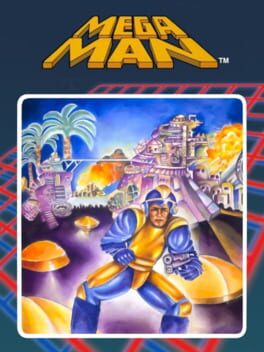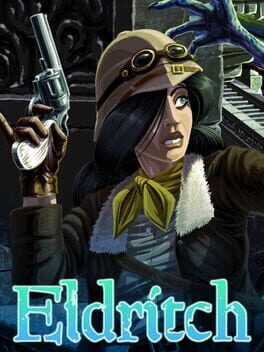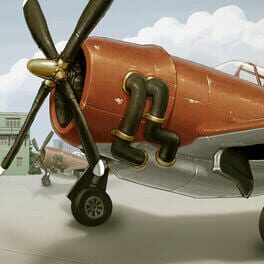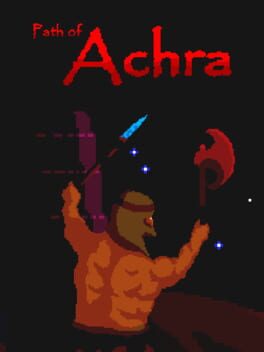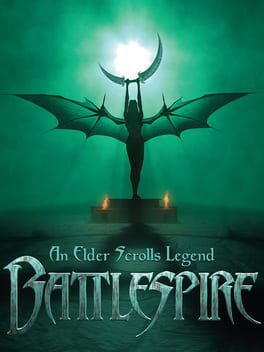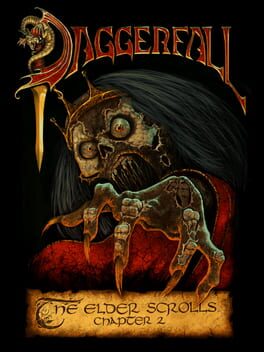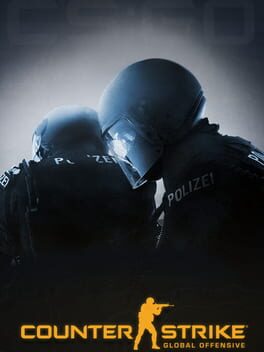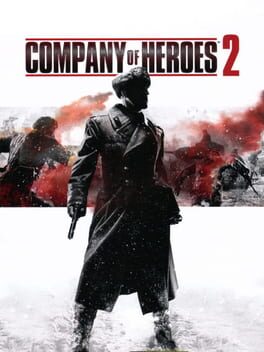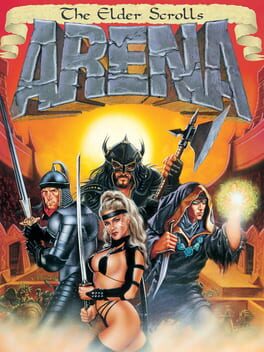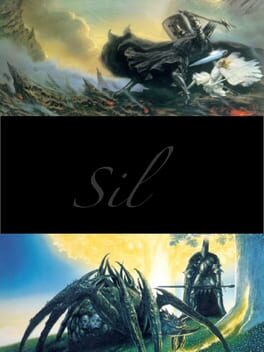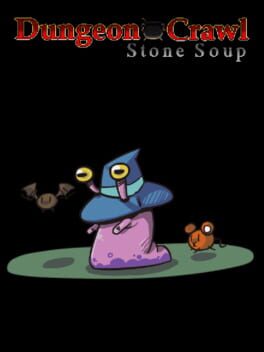muck
1987
a game with very satisfying base mechanics. as far as i know, the first if not one of the first platformers to give you the full, momentumless air control this series is known for, which feels very liberating relative to something like Castlevania. compared to most other platformers this game also has a high focus on combat and dodging enemy attacks instead of platforming which paired with most levels being fairly difficult makes for a game of attempting levels multiple times until trivialization through mastery; with exception for the ecstasy of defeating some particularly difficult bosses, this is the nicest part of the game.
despite all of that, is extremely rough around the edges. some enemies and hazards are just straight up annoying and poorly designed, many checkpoints are very bizarrely placed (why not have dedicated rooms for checkpoints?), many edge-of-the-screen spawning enemies are unpredictable to a fault or at least seemingly so, a specific enemy which doubles as a floating platform behaves annoyingly and lethally inconsistently, etc. additionally, bosses are generally poorly designed. many of them seem nigh-impossible to defeat without taking damage (at least without cheesing their AI), meaning tanking and out-damaging them is generally the way to go, especially when you can nuke them if you possess their weakness. difficulty is rather excessive, though not as much as others make it out to be. many levels overstayed their welcome and their are some brutal spikes (the beginning of Gutsman's stage, Yellow Devil (if you aren't a cheater who uses the pause-resume trick), the final Wily stage, though that last one is arguably acceptable). any one of these in isolation is not a huge deal, but combined they bring the game down quite a lot.
COMPLETED WITHOUT SAVESTATE ABUSE
despite all of that, is extremely rough around the edges. some enemies and hazards are just straight up annoying and poorly designed, many checkpoints are very bizarrely placed (why not have dedicated rooms for checkpoints?), many edge-of-the-screen spawning enemies are unpredictable to a fault or at least seemingly so, a specific enemy which doubles as a floating platform behaves annoyingly and lethally inconsistently, etc. additionally, bosses are generally poorly designed. many of them seem nigh-impossible to defeat without taking damage (at least without cheesing their AI), meaning tanking and out-damaging them is generally the way to go, especially when you can nuke them if you possess their weakness. difficulty is rather excessive, though not as much as others make it out to be. many levels overstayed their welcome and their are some brutal spikes (the beginning of Gutsman's stage, Yellow Devil (if you aren't a cheater who uses the pause-resume trick), the final Wily stage, though that last one is arguably acceptable). any one of these in isolation is not a huge deal, but combined they bring the game down quite a lot.
COMPLETED WITHOUT SAVESTATE ABUSE
2013
Infra Arcana: First Person Edition
TBD
decent base mechanics with poor enemy and level design.
2023
DCSS design philosophy at its limit.
without irony, the first Elder Scrolls game that is actually decent enough to recommend as something more than a mere exercise in history. why is that? character creation is simplified but otherwise has not changed much. combat has not changed at all. due to Battlespire's status as a spin-off, there are much less RPG elements. there certainly is not any open world to explore. Battlespire's superiority is for one primary reason: it actually has half-competent level design, likely in part due to its more limited scope.
Arena's levels, while as far as i can tell are "hand-crafted", are simply bad; they are labyrinthine to a fault, senselessly "designed", and hurt to navigate without a strategy guide. i would say this is in part an artifact of the game's open world ambitions but i am not entirely sure that is true. Daggerfall's levels are at least as intolerable, and in many ways arguably worse: every level, main quest or procgen slop, uses the same goddamn brick/cobble/tile textures fucking everywhere. you generally cannot identify what -- again main quest -- level you are on based on a screenshot. not only that, levels are constructed out of prefabs stitched together. both games' spaces are, holistically, monotonous homogenate; utterly devoid of soul.
enter Battlespire. the first thing one notices about it is that it is not an open-world RPG. it is a dungeon crawler, and when a game is a dungeon crawler, suddenly the dungeon matters a lot more. the game makes use of a diverse set of textures, models, level geometries -- this may sound like nothing, but this is a rather drastic improvement! the levels themselves are distinct from each other. one is a training facility for imperial battlemages. another is a sprawling island with various landmarks spread out across it. the various realms of Oblivion may actually end up sticking in your memory, both while you are playing the game and long after. levels do not de facto require a strategy guide to merely navigate. there are some hiccups with the game being excessively obscure, but it is nothing a brief trip to a walkthrough cannot solve. emphasis on "brief".
Battlespire's setting is a lot more interesting. you are outside of the mundanity of Tamriel, cast into the seas of Oblivion and set to traverse several of its realms flowing with magica. what or who are the residents of Oblivion? that would be the Daedra: divine immortals who instance a panoply of morphologies and personalities. you do not fight a single bat or rat in Battlespire. the resident trash mob is a diminutive satyr which speaks like a pagan from the Thief games. did i mention you can enter dialogue with practically every opponent you meet? this is all to say that the game is simply a lot more interesting and weirder than not only the previous two Elder Scrolls games but also a great deal of fantasy games more generally. you are somewhere between heaven and hell, but certainly not earth.
Battlespire is probably one of the buggiest and most poorly optimized games i have ever played. straferunning exists, which, granted, is far from unique to this game. if cycletime is too high you can both barely move and move in the wrong direction(s). that sort of jank is expected from any dos game really. what isn't expected is that even with cycletime set to what was the cycletime of one of the best CPUs at the time, the game still has noticeable movement glitches, and still performs terribly. random crashes are common. FPS drops by ~half in the presence of transparent textures. enemies either phase into the ground or turn invisible when you attack them sometimes. i can't tell which. one level corrupts your save if you load it from a restart too many times because it generates too many container objects for some reason. the final level lacks music. so it's a testament to how decent this game is, or at least tolerable relative to the hells of Arena and Daggerfall, that it is still basically enjoyable.
Arena's levels, while as far as i can tell are "hand-crafted", are simply bad; they are labyrinthine to a fault, senselessly "designed", and hurt to navigate without a strategy guide. i would say this is in part an artifact of the game's open world ambitions but i am not entirely sure that is true. Daggerfall's levels are at least as intolerable, and in many ways arguably worse: every level, main quest or procgen slop, uses the same goddamn brick/cobble/tile textures fucking everywhere. you generally cannot identify what -- again main quest -- level you are on based on a screenshot. not only that, levels are constructed out of prefabs stitched together. both games' spaces are, holistically, monotonous homogenate; utterly devoid of soul.
enter Battlespire. the first thing one notices about it is that it is not an open-world RPG. it is a dungeon crawler, and when a game is a dungeon crawler, suddenly the dungeon matters a lot more. the game makes use of a diverse set of textures, models, level geometries -- this may sound like nothing, but this is a rather drastic improvement! the levels themselves are distinct from each other. one is a training facility for imperial battlemages. another is a sprawling island with various landmarks spread out across it. the various realms of Oblivion may actually end up sticking in your memory, both while you are playing the game and long after. levels do not de facto require a strategy guide to merely navigate. there are some hiccups with the game being excessively obscure, but it is nothing a brief trip to a walkthrough cannot solve. emphasis on "brief".
Battlespire's setting is a lot more interesting. you are outside of the mundanity of Tamriel, cast into the seas of Oblivion and set to traverse several of its realms flowing with magica. what or who are the residents of Oblivion? that would be the Daedra: divine immortals who instance a panoply of morphologies and personalities. you do not fight a single bat or rat in Battlespire. the resident trash mob is a diminutive satyr which speaks like a pagan from the Thief games. did i mention you can enter dialogue with practically every opponent you meet? this is all to say that the game is simply a lot more interesting and weirder than not only the previous two Elder Scrolls games but also a great deal of fantasy games more generally. you are somewhere between heaven and hell, but certainly not earth.
Battlespire is probably one of the buggiest and most poorly optimized games i have ever played. straferunning exists, which, granted, is far from unique to this game. if cycletime is too high you can both barely move and move in the wrong direction(s). that sort of jank is expected from any dos game really. what isn't expected is that even with cycletime set to what was the cycletime of one of the best CPUs at the time, the game still has noticeable movement glitches, and still performs terribly. random crashes are common. FPS drops by ~half in the presence of transparent textures. enemies either phase into the ground or turn invisible when you attack them sometimes. i can't tell which. one level corrupts your save if you load it from a restart too many times because it generates too many container objects for some reason. the final level lacks music. so it's a testament to how decent this game is, or at least tolerable relative to the hells of Arena and Daggerfall, that it is still basically enjoyable.
certainly has a lot more going for it in sheer content (stuff like guilds, temples, etc.) and is closer to being an actual RPG when compared to Arena, yet for all its improvements it is still mired in familiar shitty labyrinthine dungeon non-design (seriously, they're largely just procgen prefabs duct-taped together!) and tedium the extent of which i am hoping is not defining of the Elder Scrolls series beyond the first 2 (3? 4? Battlespire? Redguard?) games. combat is joker-laughably superior, having enemies which generally don't have 1 tick delay attack speed (even if they still one-shot you) and letting you rest largely uninterrupted. new to the series in this entry is an often bullshit main quest that either breaks or is so obscure that the devs (and Todd?) are practically asking you to purchase the strategy guide (or, in modern times, look up the Unofficial Elder Scrolls Pages). overall just Arena but nontrivially superior, which is an incredibly low bar. an interesting piece of history. sorry for all the parentheticals.
1v1 servers are more fun than the actual game.
2013
if ttk was any longer this would suck.
2015
an artist's retaliation against the tyranny of The Critic and their various attempts on the life and/or dignity of the Author (Fountain by that idiot Duchamp, the supposed death of the author reported by that moron Barthes, and, apparently, YouTube video essays about The Stanley Parable). an admirable retaliation; too bad it embraces the same pretentious pseud energy characteristic of those same critics and false artists, epitomized by the desolate post/modern art-world aesthetic of every level. I WILL try to infer the mental state(s) of the author of an artistic work, and you can't stop me.
2021
old "tactical" fps-inspired speed game (5 stars) disguising itself as--wearing the rotten skin of--a lame BITING absurdist-melancholic anti-capitalist satire only redeemed by its comedic flair (3 stars maximum). ultimately very gay; im sure the Themes of this game are novel to many but to me it's just grating and tiring to hear about how crapitalism bad (however sophisticated the way it is said; however idiosyncratic its influences) for the gorbillionth time. all the ground tread here was already tread better by swift, verhoeven et al. too mechanically engaging and atmospherically interesting to not give 5 stars but i will likely [love-]hate this game even more if it becomes anything close to a trendsetter for indies, especially since they're almost certainly going to be less funny and less intelligent. i'm just not very interested in your trite politics, sorry!
it's good to know even the first Elder Scrolls had side quests which are just pointless filler. bewildering at first but quickly becomes merely tedious. i've heard this game was intended as only a dungeon crawler at first but was morphed into an RPG late into development, and if true, that shows. any and all "role-playing" mechanics are slapdash, though often overly ambitious. there are dozens of individual towns in this game, all complete with plenty of NPCs. there are even holidays. you can visit all of Tamriel, which is apparently unique for the series with the exception of the MMO. it's just a shame it's all copy/paste. no town has a unique identity nor do any NPCs. there is no point where you have the chance to actually role-play as your character; again, the game is at heart just a dungeon crawler.
as for the dungeon crawling, it has more individual identity. levels actually have distinct themes -- there is an ice dungeon, a volcano dungeon, etc. but the levels themselves are quite bad -- all of them without exception are sprawling and senseless labyrinths which practically require you to use the (very good!) strategy guide. as for combat, the heart of the game, it sucks. you have a problem when the heart of your game sucks. enemies early on feel far too powerful and still feel rather over-tuned late into the game. monsters often randomly spawn on top of or behind you. combat practically forces you to rest in between fights but you cannot rest while enemies are nearby (sort of like another game!) and enemies spawn near you frequently when you try to, interrupting it. you die very, very fast; too fast. at the very least swinging your weapon in different direction is cool at first, but that's about it. there's nothing really compelling in this game.
as for the dungeon crawling, it has more individual identity. levels actually have distinct themes -- there is an ice dungeon, a volcano dungeon, etc. but the levels themselves are quite bad -- all of them without exception are sprawling and senseless labyrinths which practically require you to use the (very good!) strategy guide. as for combat, the heart of the game, it sucks. you have a problem when the heart of your game sucks. enemies early on feel far too powerful and still feel rather over-tuned late into the game. monsters often randomly spawn on top of or behind you. combat practically forces you to rest in between fights but you cannot rest while enemies are nearby (sort of like another game!) and enemies spawn near you frequently when you try to, interrupting it. you die very, very fast; too fast. at the very least swinging your weapon in different direction is cool at first, but that's about it. there's nothing really compelling in this game.
2022
kind of lame. decent tone but not all that scary and the core gameplay loop is far too boring and tedious. feels like a skeleton of a better game.
2012
-1 star due to lack of autoexplore.
Playing this game with enough experience is like operating a software you've been using for a decade. The smoothest UX of any roguelike, period, and possibly of any game ever: o, tab, ctrl+f, ctrl+g, macros, etc. The least turn-based turn-based game there is. Digital crack. Has a design philosophy which amounts to the video game equivalent of removing chess openings (and the requisite need to study them) -- it is left as an exercise to the reader to determine whether or not that is a good or bad thing.
1987
i think i like NetHack conceptually more than i like actually playing it. the system-driven mechanics and unabashed embrace of adventure game "bloat" and "pointless features" is a nice change of pace compared to more gamey and streamlined and arguably soulless roguelikes like Brogue and DCSS, yet actually playing NetHack reminds me why those games are designed the way they are. i'm not sure NetHack is as bad as it's most vicious detractors say it is, but they are at least certainly onto something. lots of mechanics here encourage, intentionally or not, very boring and degenerate forms of play. altar ID, price ID, corpse eating, stashes, statues dropping spellbooks, wishes, etc. all encourage very tedious forms of play, even if they're fun or novel at first. despite all that i still feel like i don't want the game any other way.
